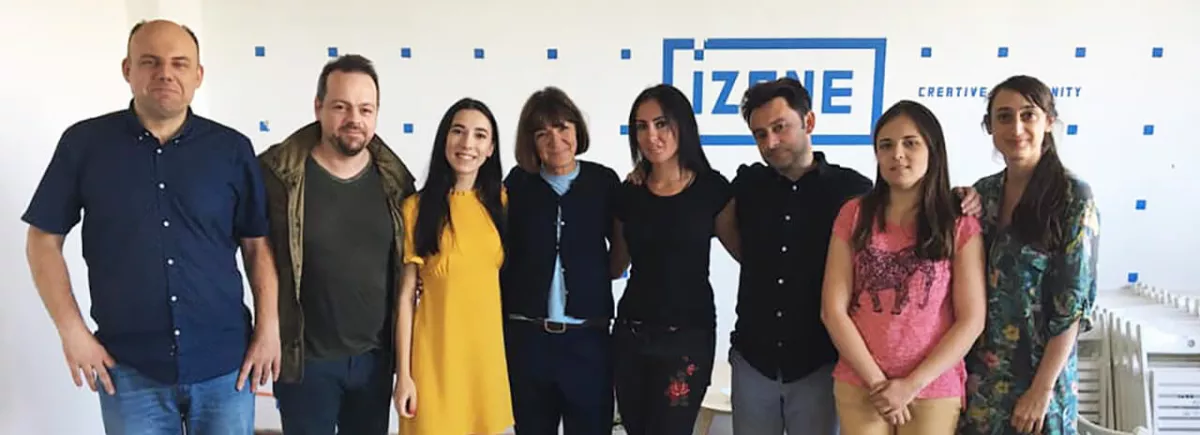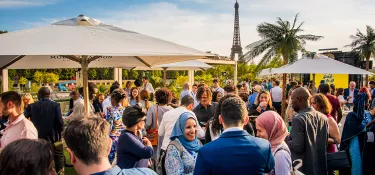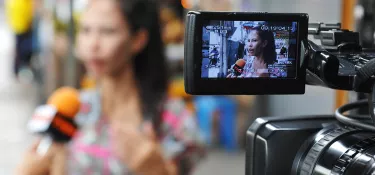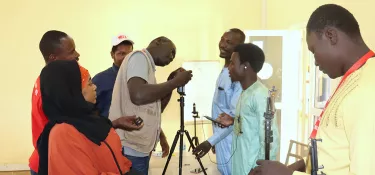
Discovering the intricacies of court reporting in France
Related project
PRAVO-Justice: the media componentThe last session of the first cycle of court journalism training as part of the Pravo-Justice project was held in Kiev on 29 and 30 June 2019. It specifically focussed on court reporting.
As in previous sessions, the group benefited from the involvement of a member of the Ukrainian legal community, for whom connections with the media are crucial. In response to a request made by interns, CFI proposed the involvement of Ivan Smilyi, a senior investigator at the National Anti-Corruption Bureau of Ukraine (NABU). He spoke about his work with the media and the assistance that journalists provide to this independent investigative body. “Due to lack of time, we always keep a channel of communication open with the media, who carry out some of our work”, he admits.
After answering some technical questions (e.g. what is the difference between a suspect and an accused? What is an affidavit? Which investigative documents are available online? What is the role of the investigating judge?), Ivan Smilyi described in detail the stages from the opening of an investigation to the beginning of a trial.
The team of mentors also wanted to highlight French court reporting, after a session covering the topics of international justice and war crimes. This was a real discovery for the group of court journalists, who welcomed with great interest the involvement of Pascale Robert-Diard, a journalist from Le Monde.
Choose your words carefully
She began by introducing them - through her own discovery of court reporting after a career as a political journalist at Le Monde - to this style that toes the line between journalism and literature. “What I like best”, she says, “is the story of someone who suddenly plunges into a life of crime.” Stories that, by recounting the judgments of different events and high-profile cases, paint a vivid picture of the multi-faceted nature of a society and its failings.
At Le Monde, trials are covered by different journalists from those who research investigations. Trials are followed extensively, from beginning to end (an approach shared in France by Le Figaro). Pascale Robert-Diard offers her audience some tips for understanding and tapping into the genre and captivating readers.
“Journalists have to capture the pivotal moments of the trial, the moments when everything shifts. Out of the eight hours of the trial, this is the moment that each juror will talk about when they get home.” Pascale Robert-Diard, a journalist at Le Monde
“How do you do it?” asks one of the participants.
“Tell me about the trial. Your emotions are what you have to write about.” During her presentation, Pascale Robert-Diard stressed the importance of accuracy in a reporter’s work and the attention that should be paid to the expressions, silences, words and legal concepts used, which also ensures the journalist is respected by judges and lawyers. “It’s a sensitive subject matter – we are reporting on people’s lives, so we have to choose our words carefully.”
According to an intern’s testimony, “the master class with Pascale Robert-Diard was the most effective. It was practical and hands-on and has provided us with useful knowledge.” It seems to have inspired an interest in this career for some participants of the first cycle of training, who will be able to continue to benefit from the production support fund made available by PRAVO-Justice: the media component.


